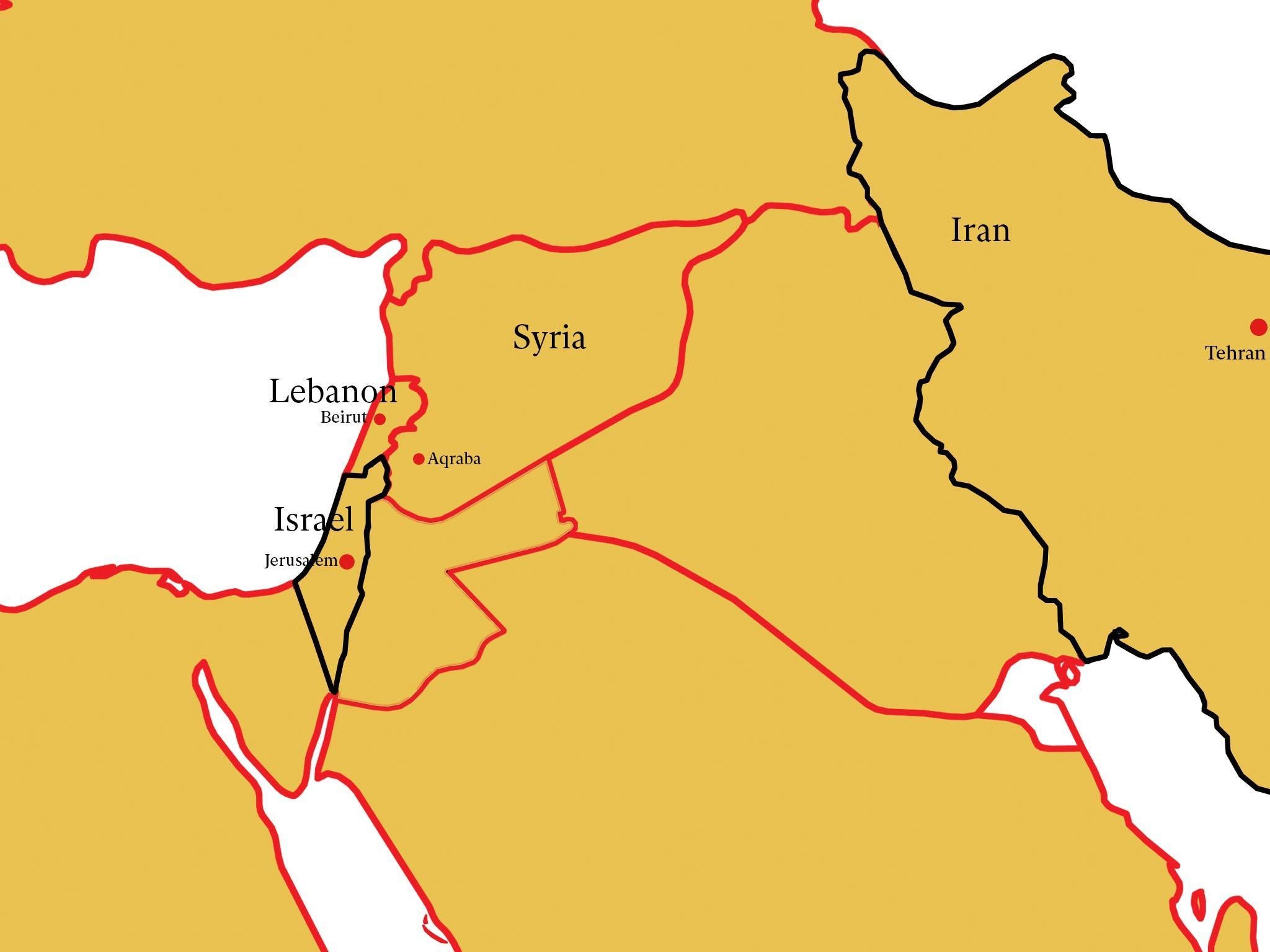Middle East Explained: Why are Iran and Israel on the brink of war?

Continuing his weekly series about the complexities of the Middle East, Ahmed Aboudouh looks at tensions between Israel and Iran.
The shadow war between Israel and Iran has stepped up in recent weeks, with Israel allegedly undertaking strikes on a number of Tehran's allies in the Middle East. The attacks – only one of which has been acknowledged by Israel publicly – are an attempt to broaden its own self-styled military “maximum pressure” campaign against Iran-backed militias across the region.
The strikes targeted Iran-backed factions in Syria, Lebanon, Iraq and the Gaza Strip. Israel is aiming to expand its military approach against Iran’s influence in the region, while also extending diplomatic pressure. The struggle between Israel and Iran risks the possibility of a wider conflict around the Middle East.
Why is the region on the brink of war?
Israeli jets attacked the Syrian city of Aqraba last Saturday, targeting what Israel’s military claimed to be “a pending, large-scale attack of multiple killer drones”. The targets are understood to be members of the elite Iranian Revolutionary Guards’ Quds force and members of Lebanon’s Hezbollah. President Michel Aoun said on Monday that Lebanon had a right to defend itself after two drones, said to be Israeli, crashed in the Hezbollah-dominated southern suburbs of Beirut.
That same day, Lebanon’s National News Agency reported that Israeli jets struck positions of the nationalist Popular Front for the Liberation of Palestine – General Command in the city of Qusaya. The group, which has strong ties with Iran, used anti-aircraft fire against the Israeli jets, putting Israel and Lebanon on the brink of the most serious military confrontation since the 2006 war. Aoun called the alleged attacks in Beirut and Qusaya a “declaration of war”.
Two days later, the Lebanese army opened fire on two other Israeli drones that breached Lebanese airspace. Israel said the drones were unharmed.
The powerful al-Fatah political alliance in Iraq called strikes on the mostly-Shia Popular Mobilisation militias a “declaration of war on Iraq and its people”.
The alliance accused Israel of standing behind the drone strikes, which took place near the Iraqi border with Syria and killed a militia commander. It prompted a statement from prime minister Adel Abdel-Mahdi, who said: “Iraq is ready to respond rigorously against any domestic or foreign aggression.”
The Popular Mobilisation militias are integrated into the Iraqi army and security forces but maintain close ties with Iran. Meanwhile, violence escalated near the Gaza Strip, when an unidentified group launched three rockets into Israel. The Israeli army responded by launching airstrikes on Hamas positions.
Why is this escalation dangerous?
It comes at a time when Donald Trump is tightening the screws on Iran, by applying his “maximum pressure” campaign to force the nation to the negotiations table – after the US withdrew from a nuclear deal signed with Iran in 2015. But Trump’s administration is struggling to convince other signatories, especially the UK, to pull out of the deal.
Only the UK, Bahrain and Australia have officially signed up to a US-led maritime coalition to protect freedom of navigation in the Gulf, after senior officials in the administration accused Iran of harassing international ships in the Strait of Hormuz. Israel has expressed interest in joining the new coalition, which Iran describes as a direct threat. Analysts say the two countries are turning the whole region into a battlefield. While all parties say they don’t want all-out war, they seem ready to press home any advantage they can.
The US seems determined to take Israel and its Gulf allies’ side, in a bid to scale back the increasing Iranian influence the Middle East. On Thursday, the UN Security Council warned that violations of the cessation of hostilities between Israel and Lebanon in the latter country's south “could lead to a new conflict that none of the parties or the region can afford”. The Security Council urged all parties to “exercise maximum calm and restraint and refrain from any action or rhetoric that could jeopardise the cessation of hostilities or destabilise the region”.
How could this end?
There are two ways. Any miscalculation could drag the whole region to a war that would last for years. Iran doesn’t want to lose its long investment in loyal militias in Lebanon, Syria, Iraq and Yemen, which provides huge leverage over its Arab rivals.
Israel’s prime minister Benjamin Netanyahu is trying to appear decisive against Iran ahead of elections in three weeks. He relies on support from right wingers, who seek a hardline on foreign policy.Israel’s potential membership of the American-led maritime force in the Gulf would pose a serious threat to Iran’s borders. Iran is not expected to tolerate this move.
While the US is steadily giving up leadership in the region, major players such as Israel and Iran look eager to fill that vacuum and ensure that their influence spreads.
Join our commenting forum
Join thought-provoking conversations, follow other Independent readers and see their replies
Comments